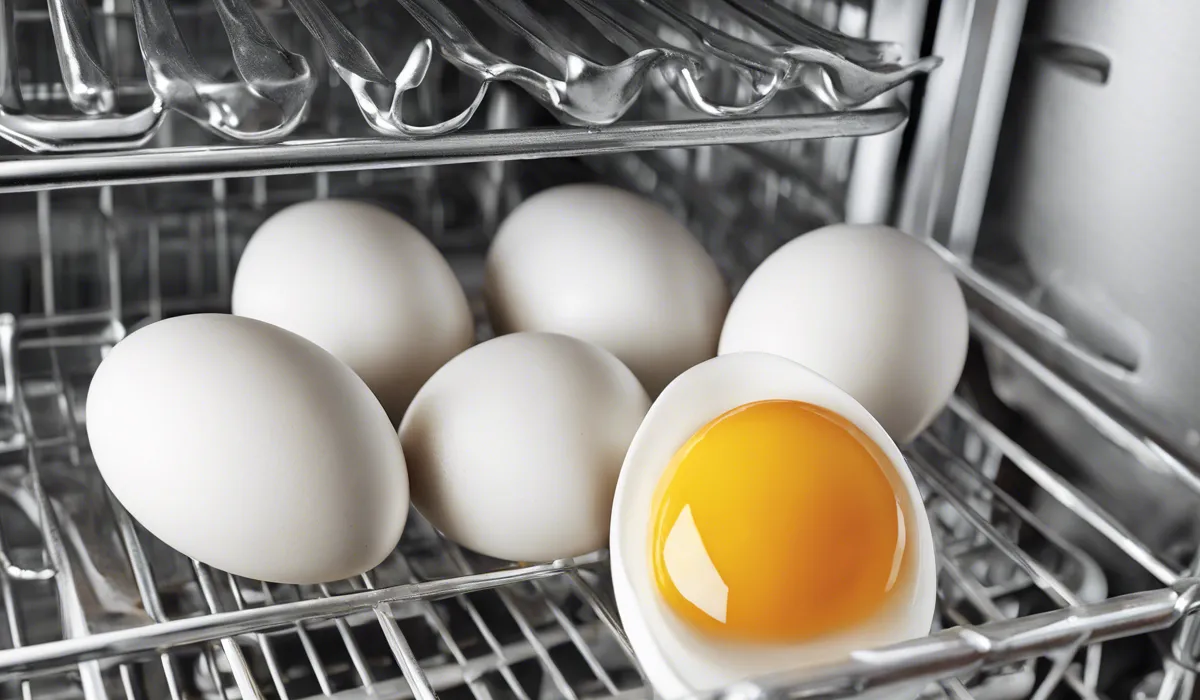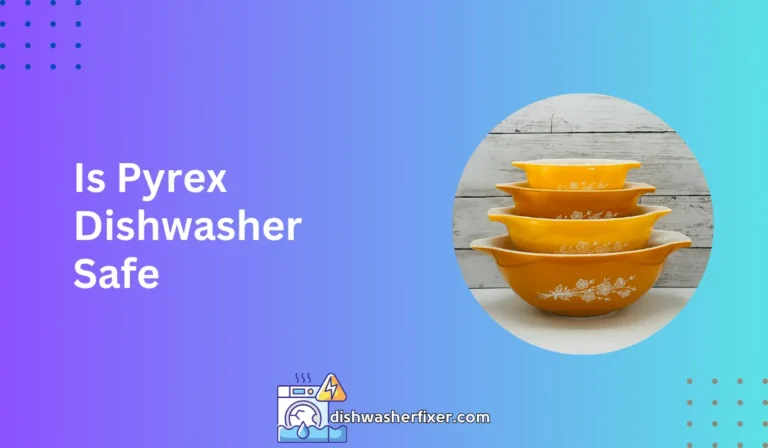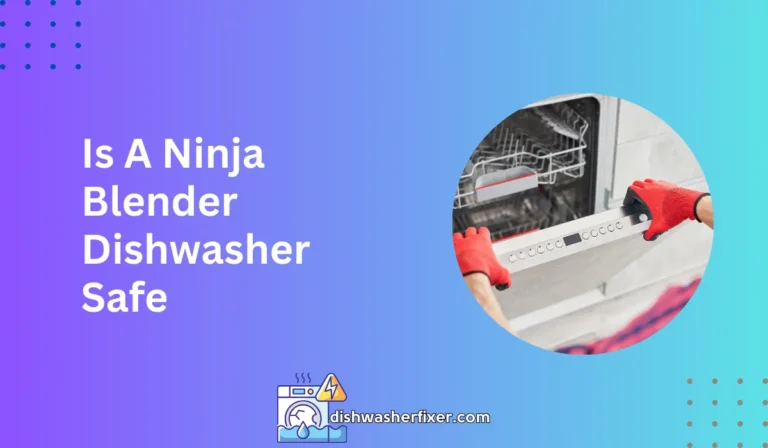Why Does My Dishwasher Smell Like Rotten Eggs? Quick Fixes!
Your dishwasher may smell like rotten eggs due to trapped food particles decomposing, a clogged drain hose, or a malfunctioning high loop. Clean food filters, unclog hoses, and check the high loop setup to eliminate the odor.
Causes of Rotten Egg Smell in Dishwashers

Decomposing Food Particles
One common reason for a smelly dishwasher is the accumulation of food waste. Small bits of food can get trapped in the filter or hidden crevices.
Over time, these particles start to decompose, emitting a rotten egg smell. This is a natural process, but it’s certainly not pleasant in your kitchen. Keeping the filter clean is essential to prevent this issue.
Grease and Grime Buildup
Another culprit can be the buildup of grease and grime in the pipes and nozzles of your dishwasher.
If you often wash dishes with heavy residues, over time, the fats and oils can start to line the inner workings of your machine, leading to unpleasant smells as they become rancid. Regular maintenance is key to avoiding this buildup.
Stagnant Water Issues
Stagnant water left in the bottom of your dishwasher or in the drain hose can also lead to a rotten egg smell.
This can happen if the dishwasher is not draining properly or if there is a kink in the drain hose that prevents water from flowing out. The stagnant water becomes a breeding ground for bacteria, which causes the odor.
Bacteria and Mold Growth
Damp environments are perfect for bacteria and mold to thrive.
If your dishwasher is not drying properly, it can lead to the growth of these organisms, which can produce a variety of unpleasant smells, including the scent of rotten eggs.
Regularly airing out your dishwasher and ensuring it dries properly can mitigate this problem.
Drain System Complications
A malfunctioning or clogged drain system can also be the reason for the bad smell. If water cannot exit the dishwasher, it will turn stagnant, leading to the issues mentioned earlier.
A proper functioning high loop or air gap installation is necessary to prevent backflow of sink water into the dishwasher, which can also cause odors.
Inappropriate Cleaning Agents
Finally, using insufficient or incorrect cleaning agents may contribute to the problem.
Some detergents do not fully break down food particles or grease, leaving residues that can lead to odors. It’s important to use a detergent that is both effective at cleaning and compatible with your particular dishwasher model.
Troubleshooting and Maintenance Tips

Adopting a Cleaning Routine
To keep your dishwasher smelling fresh, establish a regular cleaning and maintenance schedule.
This should involve routine checks and cleans of the filter, spray arms, and door seals. By doing so, you can prevent the buildup of food particles and grease that lead to odors.
Cleaning the Dishwasher Filter
It’s crucial to clean the dishwasher filter regularly. Remove the filter according to the manufacturer’s instructions and rinse it under running water.
Use a soft brush to remove any trapped particles. For stubborn debris, soaking the filter in warm soapy water can help loosen the buildup before rinsing and replacing it.
System Flush with Natural Cleaners
Flushing out your dishwasher with natural cleaners like vinegar or baking soda can help eliminate odors and clear out residual buildup.
Run an empty cycle with a cup of vinegar placed on the top rack or sprinkle a cup of baking soda on the bottom of the machine and run a hot water cycle.
These natural cleaners are effective at deodorizing and cleaning without harsh chemicals.
Proper Drain Hose Installation
Ensure that the drain hose is installed properly to prevent water from becoming trapped.
It should be looped up high before connecting to the drain or garbage disposal to prevent backflow.
If you are unsure about the installation, check the manufacturer’s manual or seek professional advice.
Effective Dishwasher Loading
Loading your dishwasher effectively can also prevent food buildup. Scrape off large food particles before loading and place dishes in such a way that water can circulate freely.
Avoid overloading, as this can lead to dishes not being cleaned properly and food particles remaining.
Hot Water Cycle Benefits
Running hot water cycles can help to dissolve grease and prevent the growth of bacteria.
High temperatures ensure that your dishwasher cleans more effectively and can help to keep it smelling fresh. Consider using the hottest water setting available for at least one cycle per week.
When to Use a Dishwasher Cleaner
If natural cleaners are not enough, you may need to use a commercial dishwasher cleaner.
These are specifically designed to break down food, grease, and soap buildup in all areas of your dishwasher. Follow the instructions on the packaging for the best results.
Professional Solutions and When to Seek Help

Recognizing the Need for Repair
There are warning signs that indicate the need for professional repair of your dishwasher.
Persistent odors, poor drainage, and unusual noises are a few symptoms that something may be wrong. If basic troubleshooting does not resolve the issue, it’s time to seek professional help.
Expert Repair Services
Dishwasher repair professionals can provide a range of services, from unclogging hoses to replacing faulty components.
They have the expertise to diagnose and fix issues that may not be apparent to the average user. Relying on a professional can save you time and ensure the job is done correctly.
Water Softeners for Odor Prevention
Hard water can lead to mineral buildup in your dishwasher, which can contribute to odors.
Using a water softener can help prevent this buildup and keep your dishwasher smelling cleaner.
Discuss with a professional the best type of water softener for your home and dishwasher model.
Upgrading Your Dishwasher
If your dishwasher is old and continually problematic, it may be more cost-effective to upgrade to a new model.
New dishwashers have advanced features and are more energy-efficient. They also come with updated technologies that help prevent odor-causing issues.
Warranty and Service Options
Understanding your dishwasher’s warranty and professional service options is important.
If your dishwasher is still under warranty, repairs or replacements may be covered. Always check your warranty and service options before attempting repairs or deciding to replace your appliance.
FAQs About Dishwasher Odor
Why does my dishwasher smell like rotten eggs?
The odor may be due to trapped food particles decomposing, a clogged drain hose, or a malfunctioning high loop in the dishwasher.
How can I remove the rotten egg smell from my dishwasher?
Clean the food filters, unclog the drain hose, and ensure the high loop setup is functioning properly to remove the odor.
What causes food particles to get trapped in my dishwasher?
Food particles can get trapped due to improper scraping of dishes before loading, a dirty filter, or insufficient water flow during cycles.
How do I unclog a dishwasher drain hose?
Disconnect the drain hose and flush it with water or use a straightened wire hanger to remove any obstructions.
What is a dishwasher high loop and how does it malfunction?
A dishwasher high loop is an upward bend in the drain hose to prevent sink water from backing up into the dishwasher. It can malfunction if it’s not installed properly or becomes loose over time.
Final Thoughts
Dishwasher odors like rotten eggs often stem from decomposing food remnants, blockages in the drain hose, or a faulty high loop arrangement.
Regular maintenance, including cleaning filters, unclogging hoses, and ensuring the high loop is correctly installed, can help prevent and remove unpleasant smells.





